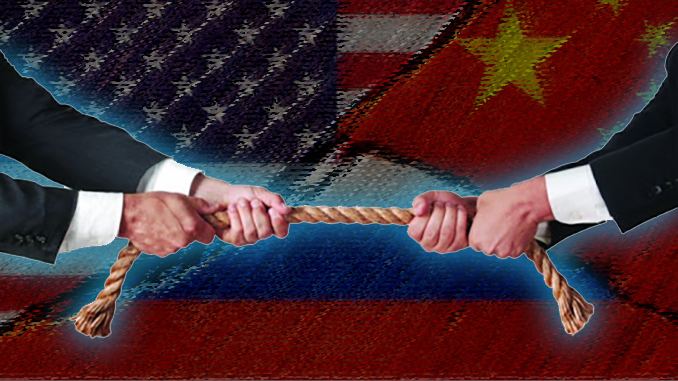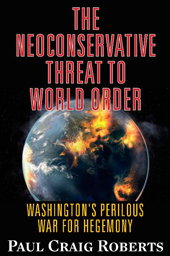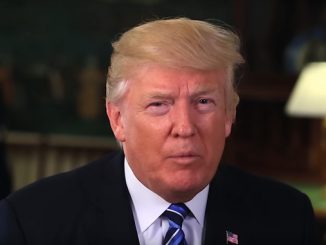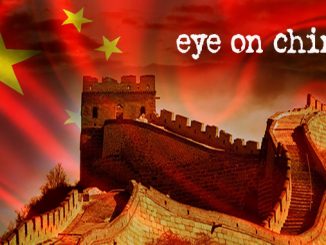
By Richard Walker
While the global pandemic dominates the headlines, rising tensions between the U.S., Russia, and China may pose a greater threat to all of us. Experts in Europe, China, and Russia have been sounding the alarm while Congress and the mainstream media have been all but silent on the issues facing U.S. relations with China and Russia, and the fact that there could be a potential for war with either of those nations.
Russia recently responded angrily to a decision by President Donald Trump to move 5,000 U.S. troops out of Germany and reposition them closer to Russia’s borders, possibly within nations, including Bulgaria and Rumania, as well as Baltic states like Lithuania. While the number of troops may seem small, it should be remembered that many of these combat battalions are trained in the use of tactical-battlefield nukes and those weapons, as well as other significant materiel, would more than likely move with them.
Trump tried to signal that he was punishing Germany for not paying its NATO dues, but the move only further heightened tensions with Russia, something the world doesn’t need in these tough times.
Germany for decades has been an axis of U.S. foreign police, enabling the Pentagon to route and plan many of its operations from German bases. It has featured heavily in bearing the burden of Washington’s global anti-terrorist ops. So, by globalists’ standards, Germany is an excellent ally.
Trump has never liked German Prime Minister Angela Merkel, and he is known to make decisions based on his gut feelings toward a particular leader.
This decision has made the Russians very concerned. It is expected that they will respond by placing military assets, including tactical nuke forces, closer to NATO countries, particularly the small Baltic States.
While Washington insiders may wonder about Trump’s foreign policy decision making, the tensions with China are actually much graver and offer greater potential for war.
Before Trump took office, American Free Press had regularly warned about Chinese expansionism in the East and South China Seas, focusing on the Asia Pacific rim and Indo-Pacific rim as one of the most dangerous parts of the world.
Trump, while negotiating a trade pact, has embraced China and its leader Xi Xinping, calling him a good leader.

However, while Washington pursued trade deals with China, the Chinese People’s Liberation Army continued converting islands in the South China Sea into major fortifications and bases and studied ways to destroy U.S. aircraft carriers in a conflict. The Chinese navy and air force have also buzzed U.S. warships and surveillance aircraft.
China has also harassed Japan in the East China Sea, all as part of a grand plan to establish military dominance over the entire region, claiming it could deny shipping passage and flyovers. In response, some in the upper echelons of the Japanese military are ominously talking about having nukes and a first strike capability to deal with China, and if needed, North Korea, as well.
Last May, as Trump blasted the Chinese government for covering up the new coronavirus, he changed tack when it came to the Chinese communists. Some of the warmongers in his administration, such as Secretary of State Mike Pompeo, convinced him that China was using the pandemic to expand its control over the Pacific, that Beijing had been exploiting America’s focus on the virus, weakening U.S. military reach in that part of the world.
Trump was told that other leaders of what is known as the “Quad”—India, Australia, Japan, and the U.S.—were sounding the alarm about China’s brazen policy of domination in the Asia and Indo- Pacific regions and had increased their military, naval, and air operations while the world was focused on the pandemic. It was enough for Trump to tell his military brass that it was time to send China a message. If necessary he would ask Congress for resources to bolster Taiwan defenses. He would not tolerate Chinese communist attempts to control what were international shipping routes. He ordered B1 Bombers to be flown over the area to let China know he meant business, and additional warships were dispatched to the South and East China Seas.
As a consequence, the danger now is that it might only take a minor military tussle to explode into a major exchange and a world war.
Signs that China is also very nervous can be found in their media output where there are grave warnings about the dangers of war. This is especially true in outlets like the South China Morning Post and the Global Times.
Richard Walker is the nom de plume of a former New York mainstream news producer who grew tired of seeing his articles censored by his bosses.





Thank you, Richard Walker and American Free Press for drawing attention to the issue. We are heading for world war. I have arguing this point for years (for details why see link below, and free e-book) but it seems few are listening. The consequences of nuclear war will be far worse than this pandemic, climate change or any war mankind has fought before. (ghostsofhistory.wordpress.com)